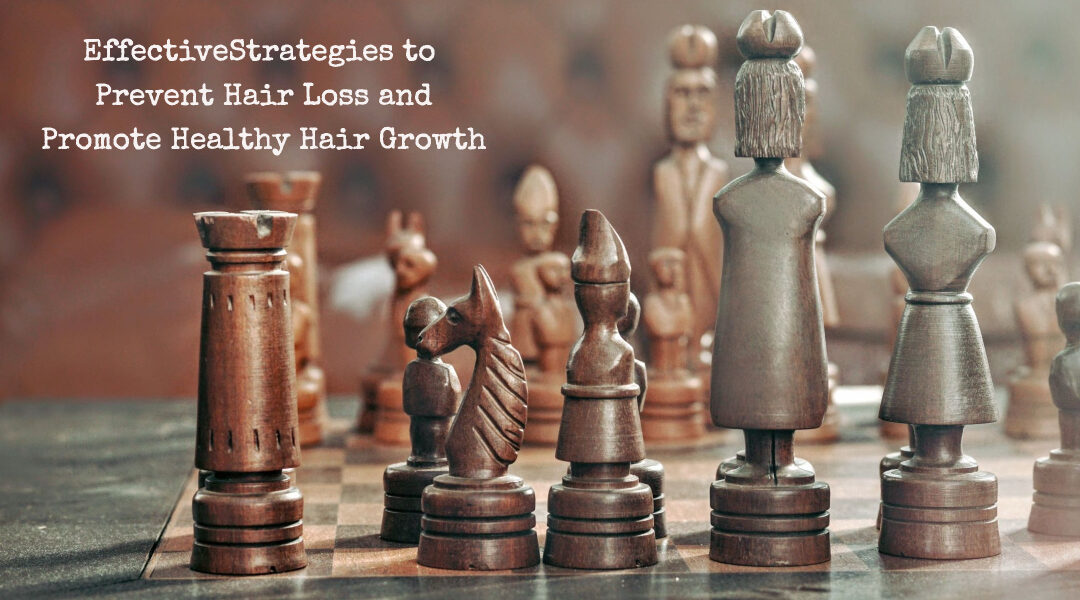Hair loss can be a distressing experience for many individuals, impacting their self-esteem and overall well-being. Fortunately, there are various strategies and lifestyle changes that can help prevent hair loss and promote healthy hair growth. In this article, we will explore these techniques, keeping things easy to understand at an 8th-grade reading level, and emphasize how they can benefit those dealing with hair loss.
Understanding the Basics:
Hair loss, medically known as alopecia, can occur due to various factors, including genetics, hormonal imbalances, poor nutrition, stress, and certain medical conditions. It’s essential to understand the underlying causes to address hair loss effectively.
1. Maintain a Balanced Diet:
A crucial step in preventing hair loss is maintaining a balanced diet rich in essential nutrients. Your hair requires vitamins, minerals, and proteins to stay healthy and strong. Include foods like leafy greens, eggs, lean meats, and nuts in your diet to ensure you’re getting the necessary nutrients.
2. Scalp Care:
A healthy scalp is the foundation for healthy hair. Regularly washing your hair with a mild shampoo and gently massaging your scalp can improve blood circulation and promote hair growth. Avoid using harsh chemicals and hot water, as they can damage your hair and scalp.
3. Stress Management:
Chronic stress can contribute to hair loss. Practicing stress-reduction techniques such as meditation, yoga, or deep breathing exercises can help lower stress levels and prevent hair loss associated with it.
4. Avoid Tight Hairstyles:
Tight hairstyles like braids, ponytails, or cornrows can put excessive tension on your hair follicles, leading to hair loss. Opt for looser hairstyles that are gentler on your hair and scalp.
5. Limit Heat Styling:
Excessive use of heat styling tools like straighteners and curling irons can weaken your hair and cause it to break. Try to limit the use of these tools and use a heat protectant spray when you do.
6. Be Gentle with Wet Hair:
Wet hair is more vulnerable to damage, so avoid vigorous towel-drying and combing when your hair is wet. Instead, use a wide-toothed comb or a brush specifically designed for wet hair to prevent breakage.
7. Use Hair-Friendly Products:
Choose hair care products that are free from harsh chemicals and sulfates. Look for shampoos and conditioners that are designed to strengthen and nourish your hair.
8. Stay Hydrated:
Proper hydration is essential for overall health, including the health of your hair. Drink plenty of water to keep your hair and scalp hydrated.
9. Consult a Professional:
If you’re experiencing significant hair loss, it’s essential to consult a dermatologist or a healthcare professional. They can diagnose the underlying cause and recommend appropriate treatments, such as medication or hair transplant surgery.
10. Medications and Treatments:
In some cases, medications like minoxidil or finasteride may be prescribed to promote hair growth. These medications work by preventing further hair loss and stimulating the growth of new hair.
Preventing hair loss and promoting healthy hair growth is not only about aesthetics but also about boosting one’s self-confidence and overall well-being. By adopting these simple strategies, individuals experiencing hair loss can take proactive steps to improve their hair health:
- A balanced diet rich in essential nutrients supports healthy hair growth.
- Proper scalp care ensures a strong foundation for hair.
- Stress management techniques can prevent hair loss related to chronic stress.
- Choosing gentle hairstyles and minimizing heat styling reduces hair damage.
- Using hair-friendly products and staying hydrated nourishes your hair.
- Consulting a professional can diagnose and treat severe hair loss issues.
- Medications and treatments can be effective in preventing further hair loss.
Hair loss can be a challenging issue, but with the right strategies and lifestyle changes, it is possible to prevent further loss and promote healthy hair growth. These tips are not only easy to understand but also offer practical solutions to help those dealing with hair loss regain their confidence and maintain vibrant, healthy hair.

